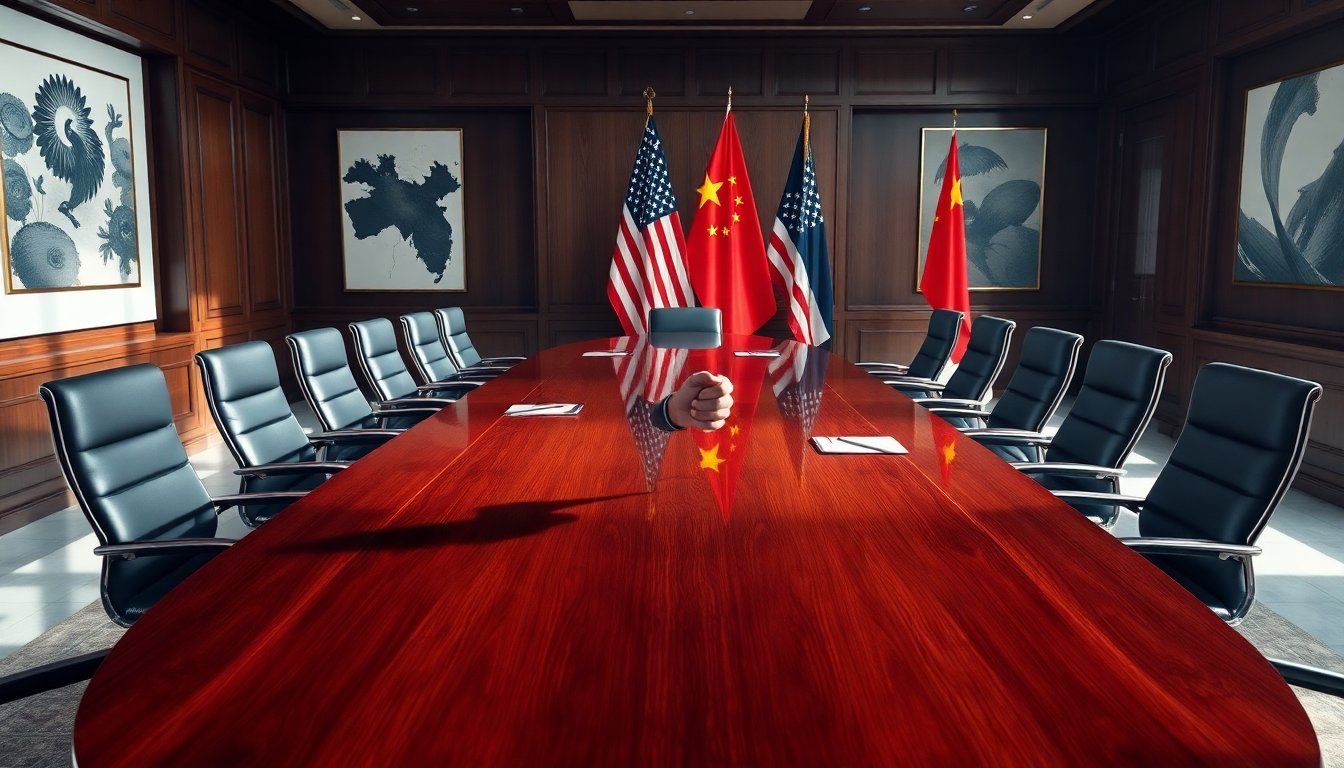Table of Contents
As global political dynamics shift, Xi Jinping, the General Secretary of the Communist Party of China, is positioning himself to extract significant concessions from President Donald Trump. This strategy revolves around leveraging Trump’s interest in securing a favorable trade agreement, presenting a unique opportunity for Xi to advocate for his longstanding objective: the prevention of Taiwan’s independence.
The relationship between the United States and China has recently been characterized by fluctuating tensions, particularly in trade. As Trump seeks to affirm his economic policies through a trade deal that would bolster his administration’s standing, Xi recognizes that this moment could serve as a bargaining chip for addressing his core national interest regarding Taiwan.
Trade negotiations as a strategic battleground
In the intricate web of international relations, trade negotiations often serve as a battleground for larger geopolitical issues. For Xi, the current climate offers a prime opportunity to negotiate terms that could indirectly influence Taiwan’s political status. The Chinese leader views Taiwan as a breakaway province, and any movement toward independence is seen as a direct challenge to China’s sovereignty.
The significance of Taiwan in Sino-American relations
Historically, Taiwan has been a flashpoint in Sino-American relations. The United States has maintained a policy of strategic ambiguity regarding Taiwan, complicating the situation further. By advocating for a robust trade agreement, Xi aims to engage Trump in a dialogue that could redirect focus away from Taiwan’s independence. This tactic is deeply rooted in national pride and geopolitical strategy.
Xi’s approach is to utilize Trump’s political aspirations to create a scenario where concessions regarding Taiwan can be discussed. By emphasizing mutual economic benefits, Xi hopes to entice Trump into a more favorable stance on key issues surrounding Taiwan.
Potential outcomes of Xi’s strategic maneuvering
The potential outcomes of Xi’s strategy could be significant. If Trump commits to addressing Taiwan’s status through concessions, it may result in a temporary easing of tensions in the region. However, such an outcome could also set a precedent that influences future actions by both China and Taiwan.
Risk of escalation
Conversely, the quest for concessions could escalate tensions if negotiations falter. A failure to reach an agreement may embolden pro-independence factions within Taiwan, leading to increased assertiveness and potentially destabilizing the region further. Xi’s challenge lies in balancing a firm stance against independence while not appearing overly aggressive in negotiations.
Moreover, domestic pressures within China also come into play. Xi must contend with nationalistic sentiments that demand a strong response to any perceived threats to Taiwan’s sovereignty. The interplay of these domestic and international pressures creates a complex landscape for Xi as he navigates the negotiations with Trump.
A delicate balancing act
The ongoing discussions between Xi and Trump represent a delicate balancing act. Xi’s pursuit of concessions is deeply intertwined with his commitment to preventing Taiwan’s independence. As both leaders engage in this intricate dance of diplomacy, the implications of their negotiations extend beyond mere trade agreements; they touch upon fundamental questions of sovereignty, national identity, and regional stability.
As the world watches closely, the outcomes of these interactions will likely shape the future of Sino-American relations and the geopolitical landscape in East Asia. Xi’s ability to capitalize on Trump’s trade aspirations may offer him the leverage needed to reinforce China’s position regarding Taiwan, marking a pivotal moment in contemporary international politics.


